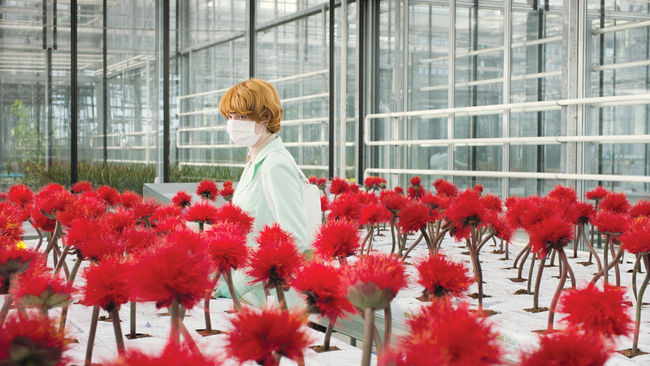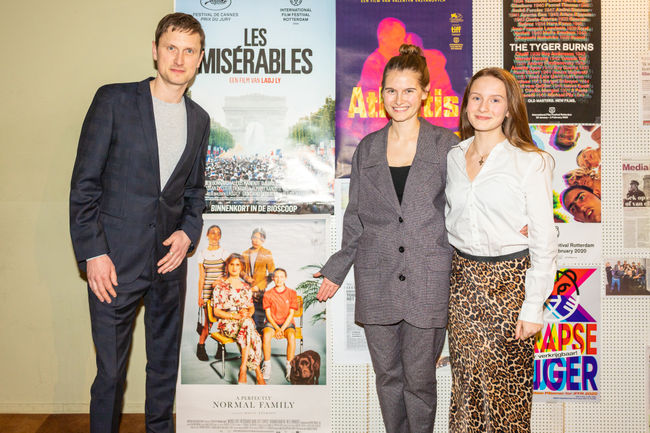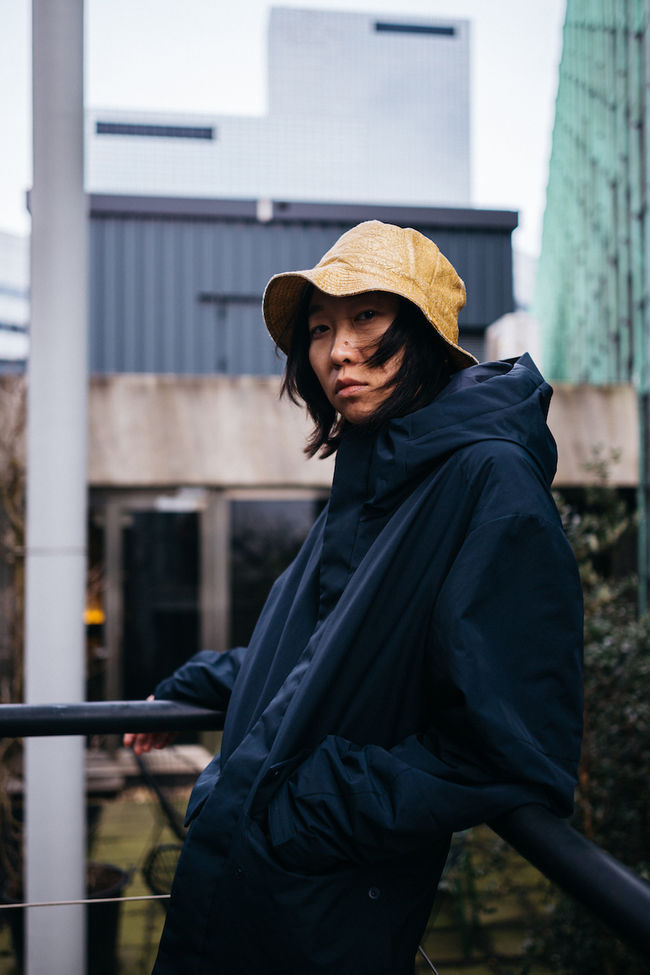Alice Winocours on Proxima
26 January 2020
Alice Winocours on Proxima
In Alice Winocour’s Proxima, Eva Green plays an astronaut and a mother. She is selected for an important mission on the Mars programme, that will take her away from her young daughter for a year. Winocour, a mother herself, was away from home for six months when shooting Proxima – and that’s not the only parallel, she says.
Proxima is a space movie that stays on Earth. It might look like science fiction, but it’s really a character study about a very familiar subject.
“For me, the film started with the idea of a special relationship between a mother and a daughter – which I know very well, because I have a daughter of a similar age as the girl in the film. Proxima is a mix between questions that I’ve been asking myself and the fascination for a world I wanted to investigate. It is impossible for me to say something personal through a film. If it comes too close to me, it has to be set in another century or another country. For me, the story was a kind of metaphor to talk about other women in other worlds. Could it have been set on an oil rig or Antarctic base? Sure, but it doesn’t need to be that specific. This dilemma of having to choose between your career and your children is not exclusive to women with a ‘special’ job; you could work in a factory or a bakery and experience the same.”
“This subject of a mother and daughter, and the daughter liberating herself from her own mother, is very intimate to me. It had to be in space. Space used to be the arena for science fiction, but it’s not anymore. We already have the International Space Station, and now there is this new project from the European Space Agency called Gateway: a space station positioned around the moon – which is kind of the next stop of a metro line. And the next stop after that will be Mars.”
The film looks distinctive from other space films and very convincing, partly because it is not shot on movie sets – which would have required a Hollywood megabudget – but at real training facilities of the European Space Agency.
“There are so many movies made about NASA. Because of cinema, space is seen as an American domain. It is always the same testosterone-driven vision of space conquest. I wanted to show something different.”
You conducted a lot of research. Were you tempted to take the space centrifuge for a spin yourself?
“No! That is very dangerous. When you're inside, it feels like you have three or four elephants sitting on your chest. I already have trouble taking the elevator here in Rotterdam to get to my room on the third floor. So no. They also asked me if I wanted to do a parabolic flight, the one they use to simulate zero gravity. That I declined. For sure, I never ever wanted to become an astronaut. Now even more, after really knowing what is involved.”
“However, there are parallels between being a filmmaker and an astronaut. Of course, we are not risking our lives. But there is this similarity that you are doing this exceptional work, that you are not in reality, but sort of living in another world. You are on a mission, preparing and dedicating yourself to it. There is also this collective aspect, that you’re working with others to realise this dream. We shared that connection, the crew and the space team. So it was as moving for them as it was for us to see how close we were.”
Are there similarities between Eva Green’s character and yourself?
“It was a long shoot, far away from home. We shot in Kazakhstan, which was hard to reach. For my daughter it was impossible to visit. We stayed on a military base, where there was nothing to do for a kid. I was away from home for six months, so I was really in the same situation as the main character of my film.”
And what did your daughter make of the film?
“I don’t know. I think she is just happy that it’s finished [laughs]. Her father is also a filmmaker. She is a bit fed up with all these questions about films. It’s a bit like the girl in the movie, whose mother and father work in the space program: to her, it’s nothing special. When I was writing the script, I asked her if she wanted to play the role of the daughter. That character is inspired by many things she does in real life. My daughter told me she didn’t want to. And that if she wanted to act in a film someday, it would be with another director than me – which I thought it was a great answer.”
written by Anton Damen







